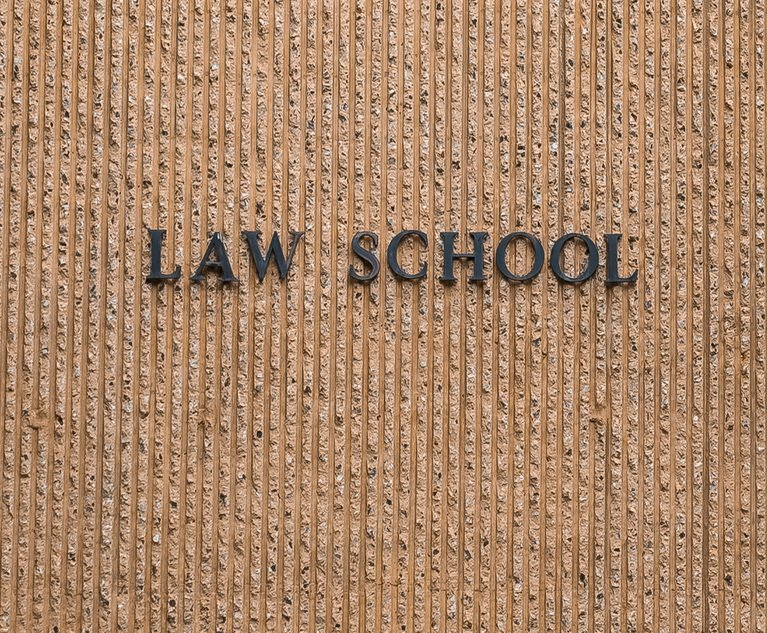Committee On Judicial Ethics

October 16, 2023 | New York Law Journal
Judicial Ethics Opinion 22-183Where a part-time town justice who is also a full-time superior court law clerk was formerly represented by counsel in a divorce action, but more than two years have elapsed since the attorney-client relationship completely terminated, including payment of legal fees: (1) In town court, the judge need not disqualify or disclose in matters involving the law firm, including the attorney(s) who personally represented the judge, based on a representation that concluded more than two years ago.
By Committee on Judicial Ethics
6 minute read

October 15, 2023 | New York Law Journal
Judicial Ethics Opinion 22-181A trial court judge may hire a law student for a judicial internship for academic credit while the student is simultaneously employed part-time in a non-legal paid position at an investment bank which has cases before the judge. Assuming the judge can be fair and impartial, the judge may still preside in cases involving the bank, but must disclose to the parties the student's relationship with the bank and insulate the student from those cases.
By Committee on Judicial Ethics
5 minute read

October 12, 2023 | New York Law Journal
Judicial Ethics Opinion 22-180A full-time judge may accept an invitation from an overseas not-for-profit charitable foundation to speak at an annual conference on a matter concerning the legal system and, under the circumstances, may accept the organization's offer of business class airline travel.
By Committee on Judicial Ethics
5 minute read

October 11, 2023 | New York Law Journal
Judicial Ethics Opinion 22-179A judge is not disqualified from an Article 78 proceeding in which a media outlet seeks to compel a law enforcement agency to disclose certain information about an inmate pursuant to the Freedom of Information Law, merely because the judge's attorney spouse sent a preservation letter to the same agency on an unrelated matter.
By Committee on Judicial Ethics
5 minute read

October 10, 2023 | New York Law Journal
Judicial Ethics Opinion 22-178May a judge, who serves as a mentor at a law school, write a letter of recommendation in support of a mentee student's application for permanent residence in the United States?
By Committee on Judicial Ethics
2 minute read

October 09, 2023 | New York Law Journal
Judicial Ethics Opinion 22-177(1) A judge who was formerly a supervisory-level attorney at the Legal Aid Society: (a) is permanently disqualified in cases in which the judge participated in any way as an attorney, whether in a personal or supervisory capacity and (b) is disqualified, subject to remittal, from presiding over matters involving former clients for a period of two years, commencing from the end date of the judge's employment with Legal Aid.
By Committee on Judicial Ethics
6 minute read

October 05, 2023 | New York Law Journal
Judicial Ethics Opinion 22-176Must a judge who authorizes or knowingly permits their name to appear on a publicly circulated nominating petition as a candidate for nonjudicial office resign from judicial office?
By Committee on Judicial Ethics
2 minute read

October 04, 2023 | New York Law Journal
Judicial Ethics Opinion 22-175A judge may participate in a not-for-profit entity's "backpack program" which provides a personalized gift to each adoptee and/or adoptive parent following a finalized adoption.
By Committee on Judicial Ethics
3 minute read

October 03, 2023 | New York Law Journal
Judicial Ethics Opinion 22-174(1) At this time, the remaining duties described are not ministerial, as this specific matter remains open and pending in significant respects until and unless the judge receives information indicating that the former client has either consulted with an attorney or has refused to do so.
By Committee on Judicial Ethics
5 minute read

October 02, 2023 | New York Law Journal
Judicial Ethics Opinion 22-173(1) Where an appellate judge successfully sought to vacate a vexatious lien filed by a disgruntled litigant against the judge's real property, the judge may nonetheless preside over appeals from other decisions or orders rendered by the lower court judge who granted the petition to vacate, provided the appellate judge can be fair and impartial.
By Committee on Judicial Ethics
7 minute read
Trending Stories
- 1The Appropriate Exemption in Students for Fair Admissions v. President & Fellows of Harvard College
- 2DOJ, 10 State AGs File Amended Antitrust Complaint Against RealPage and Big Landlords
- 3New Partners at Cummings & Lockwood, Carmody Torrance Sandak & Hennessey
- 4'Extra Government'?: NY Top Court Eyes Ethics Commission's Constitutionality
- 5South Texas College of Law Houston Selects New Dean
More from ALM
- Scan In Progress: Litigators Leverage AI to Screen Prospective Jurors 1 minute read
- Legal Speak at General Counsel Conference East 2024: Match Group's Katie Dugan & Herrick's Carol Goodman 1 minute read
- Legal Speak at General Counsel Conference East 2024: Eric Wall, Executive VP, Syllo 1 minute read



